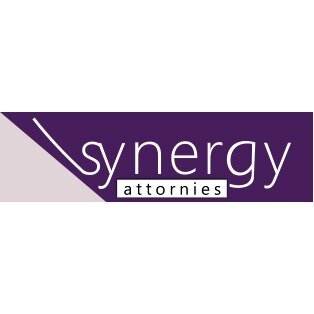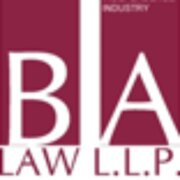Best Securities Lawyers in Nigeria
Share your needs with us, get contacted by law firms.
Free. Takes 2 min.
Or refine your search by selecting a city:
List of the best lawyers in Nigeria
Legal guides written by Adeola Oyinlade & Co:
- Procedure and Requirements for Work Permit and Visas in Nigeria
- The Step-By-Step Procedure of How to Apply for Microfinance Bank License Online in Nigeria
- How to Ensure the Smooth Recognition and Enforcement of Foreign Judgments in Nigeria
About Securities Law in Nigeria
Securities law in Nigeria is primarily governed by the Investment and Securities Act (ISA) of 2007. The regulatory body responsible for overseeing securities transactions and ensuring market integrity is the Securities and Exchange Commission (SEC) of Nigeria. The Nigerian Stock Exchange (NSE) is the primary market for trading in securities, and it is crucial for promoting economic growth and investment in the country. Securities include a wide range of financial instruments such as stocks, bonds, and derivatives, which are traded to raise capital for businesses and governments.
Why You May Need a Lawyer
There are several situations in which an individual or company may require legal assistance in securities. Common scenarios include:
- Understanding and complying with complex securities regulations.
- Assisting with the issuance or trading of stocks, bonds, or other securities.
- Handling disputes or litigations involving securities fraud or insider trading.
- Providing legal advice during mergers and acquisitions that involve securities.
- Managing regulatory compliance for companies listed on the Nigerian Stock Exchange.
- Advising on investment strategies and protecting investor rights.
Local Laws Overview
The key aspects of securities laws in Nigeria include:
- The Investment and Securities Act (ISA) 2007, which outlines regulations for securities transactions, the roles of the SEC, and outlines the procedures for corporate governance.
- The Financial Reporting Council Act, which addresses financial transparency and accountability for companies.
- The Companies and Allied Matters Act (CAMA), which provides guidelines for the incorporation and management of companies in Nigeria.
- Specific SEC Rules and Regulations that provide detailed guidance on different aspects of securities law, such as market conduct, public offerings, and disclosure obligations.
- Anti-Money Laundering (AML) regulations that ensure transparency and help curb illicit financial activities in the securities market.
Frequently Asked Questions
What is the role of the SEC in Nigeria?
The SEC is responsible for regulating the securities market, ensuring investor protection, promoting fair trading practices, and maintaining market integrity.
What are securities?
Securities are financial instruments that hold value and can be traded. Common types include stocks, bonds, and derivatives.
How can a company get listed on the Nigerian Stock Exchange?
A company must meet the NSE’s listing requirements, which include having audited financial statements, a minimum number of shareholders, and complying with the disclosure obligations set by the SEC.
What constitutes insider trading in Nigeria?
Insider trading involves buying or selling securities based on material, non-public information. It is illegal under Nigerian securities laws.
Are there penalties for violating securities laws in Nigeria?
Yes, penalties can include fines, sanctions, suspension of licenses, and even imprisonment for serious violations of securities laws.
How can investors protect themselves from securities fraud in Nigeria?
Investors should conduct thorough due diligence, verify the legitimacy of securities offerings, and consult with legal professionals before making investment decisions.
What are the disclosure requirements for public companies in Nigeria?
Public companies are required to provide timely and accurate information regarding their financial health, business operations, and any material changes to the company.
Can foreign investors participate in the Nigerian securities market?
Yes, foreign investors are allowed to invest in the Nigerian securities market, subject to specific regulations and restrictions.
What is the process for resolving securities disputes in Nigeria?
Securities disputes can be resolved through arbitration, litigation, or mediation, depending on the agreement between the parties involved.
How is the corporate governance of listed companies regulated?
Corporate governance is regulated by the SEC and CAMA, with detailed guidelines and codes of conduct to ensure transparency, accountability, and fairness in management practices.
Additional Resources
Helpful resources for those seeking legal advice in securities in Nigeria include:
- Securities and Exchange Commission (SEC): The primary regulatory body for securities in Nigeria.
- Nigerian Stock Exchange (NSE): The main platform for securities trading and information.
- Financial Reporting Council of Nigeria: Responsible for ensuring financial transparency and proper accounting standards.
- Nigerian Bar Association (NBA): Provides a directory of legal professionals specializing in securities law.
Next Steps
If you need legal assistance in securities, consider the following steps:
- Identify the specific legal issue or area of concern in securities you need help with.
- Research and consult with a qualified securities lawyer or firm with experience in Nigeria.
- Prepare all necessary documentation and relevant information related to your case or query.
- Evaluate the lawyer's expertise, availability, and fees before making your decision.
- Schedule a consultation to discuss your case and explore possible legal solutions.
Lawzana helps you find the best lawyers and law firms in Nigeria through a curated and pre-screened list of qualified legal professionals. Our platform offers rankings and detailed profiles of attorneys and law firms, allowing you to compare based on practice areas, including Securities, experience, and client feedback.
Each profile includes a description of the firm's areas of practice, client reviews, team members and partners, year of establishment, spoken languages, office locations, contact information, social media presence, and any published articles or resources. Most firms on our platform speak English and are experienced in both local and international legal matters.
Get a quote from top-rated law firms in Nigeria — quickly, securely, and without unnecessary hassle.
Disclaimer:
The information provided on this page is for general informational purposes only and does not constitute legal advice. While we strive to ensure the accuracy and relevance of the content, legal information may change over time, and interpretations of the law can vary. You should always consult with a qualified legal professional for advice specific to your situation.
We disclaim all liability for actions taken or not taken based on the content of this page. If you believe any information is incorrect or outdated, please contact us, and we will review and update it where appropriate.
Browse securities law firms by city in Nigeria
Refine your search by selecting a city.

















